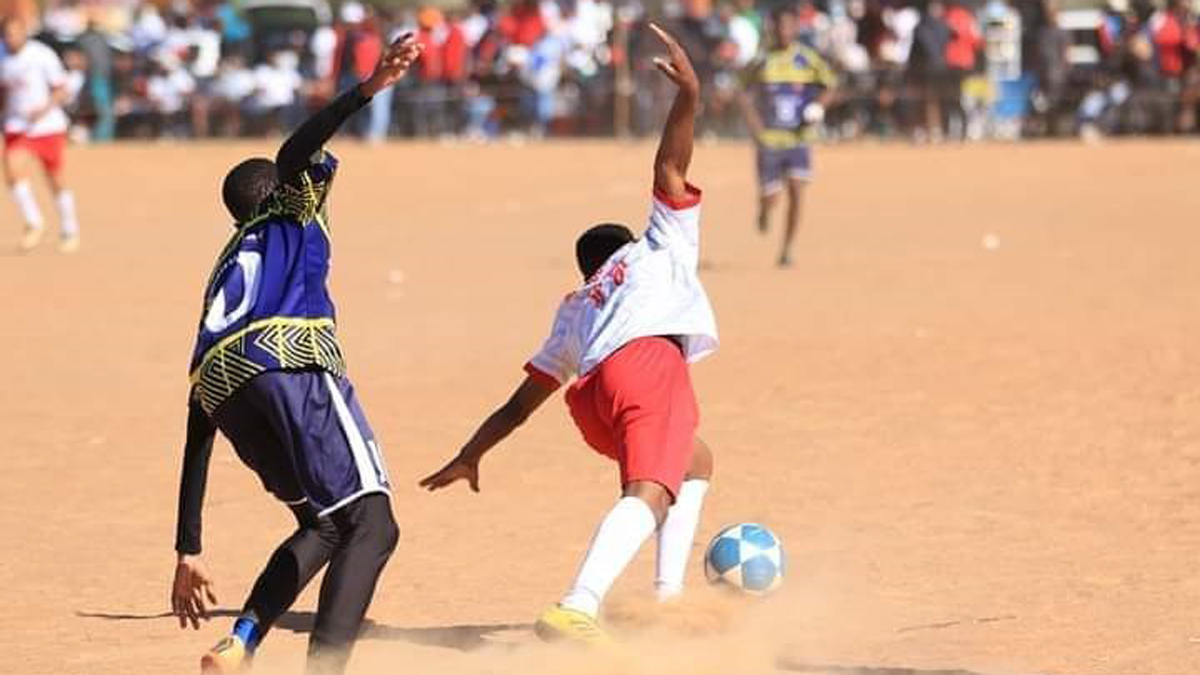The epic rise of social football
It has become a lifestyle for wannabe footballers, a place for some retired professionals to relive their glory days and a source of great entertainment for the masses that faithfully fill the touchline when match-day comes around. Sunday soccer is a phenomenon currently taking Botswana by storm.
Social football, as the craze is also known, has become a force to reckon with, and a concern for those running mainstream football. A fortnight ago Botswana Football Association (BFA) issued a warning to players contracted to its affiliates to stay away from Sunday football or face the consequences.
It was a directive heeded by very few as Premier League and First Division players alike engaged in tournaments across the country during the just ended President Holidays.
This was the second time the association issued such an ultimatum in the last two years. A similar warning was sent out in August 2020 following the suspension of sporting activities due to the outbreak of Covid-19.
As Corona regulations were relaxed, Sunday action was allowed to return way before the resumption of competitive football, opening the floodgates for football hungry players.
“The lure of these tournaments is irresistible to these players. It’s a way for them to make quick money, because their teams don’t pay them when on season break,” explained one of the tournament organisers who chose to remain anonymous.
“I personally know it’s wrong to engage them, but I also know their struggles; that’s why we hire them,” he continued.
Like the soothing Sunday jazz ballards, football on the last day of the weekend has become a weekly ritual for players and supporters alike.
The speed at which it is growing has been a source of debate amongst administrators and armchair critics.
Former FRAFA Chairperson Maokaneng Bontshetse was one of the first to publicly share his concerns about the rise of ‘Sunday soccer’.
In a social media post, Bontshetse warns football administrators under BFA should be worried by the way social football is stealing their limelight.
“It’s so sad to see social football attracting sponsors and looking so well organised while ours at regional level are going thru hard times. It is normal to be worried if we lose players, coaches and administrators to social clubs. We need to introspect and map way forward. I’m so worried about this development. We need to do something. Regional Football is the most affected by this development. We are slowly loosing grip on the beautiful game,” wrote Bontshetse on 27 June.
The founder of Tonota FC and Evolia sportswear linked the growth of Sunday football to the hopelessness and boredom that followed the many months of lockdowns and a ban on competitive sports and other forms of entertainment.
“Remember when people were released from their incarcerations, football was the only source of entertainment. Music shows were not allowed, and this phenomenon caught on,” opined Bontshetse.
However, he says his fear is that corporate entities have come on board and seem to be getting their money’s worth.
“Social clubs are offering what mainstream football has failed to offer, and that is support base,” he reasoned.
“Sunday football is now attracting the same people we’re trying to lure to mainstream. Even worse for us is that people in charge of some of this corporate entities play for these Sunday teams, and have no time to watch our Premier League matches,” he added.
“Social football has overtaken us, and we’ve to do something!” fired Bontshetse in conclusion.
Former Tswapong Regional Chairman and founder of Pilikwe United, Fobby Radipotsane, has a slightly different view.
Radipotsane believes the vibe seen at social football matches could be traced back to when then President, Ian Khama banned alcohol from local stadia.
“If you look closely, the main catch at Sunday football is alcohol. Football supporters are free to watch their favourite sport while enjoying their favourite drinks,” Radipotsane told Voice Sport, admitting this is the downside of this unregulated Sunday ‘sacrament’.
He said while it’s a positive pastime and good initiative to keep fit, especially for former players whose weight often balloons after retirement, it is also risky as most of these players travel long distances to honour their fixtures.
“They drive under the influence of alcohol and that is a serious concern,” said Radipotsane.
The football administrator, however, says he’s not worried about the growth of Sunday football.
“It’s off-season and players are bored. I don’t think it’ll have any impact on mainstream football,” he concluded confidently.







